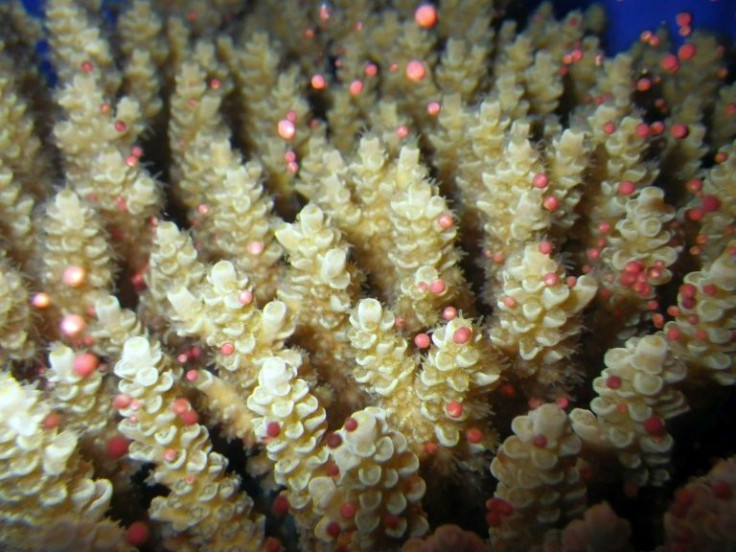Evolution To Rescue: Climatic Resilience Of Coral Reefs Key To Its Conservation, Says Study
KEY POINTS
- Earth will lose 99% of all coral reefs by the end of this century
- 75% of all coral reefs are endangered due to climate change
- Coral reefs can evolve and adapt to the growing effects of climate change
It is common knowledge now that coral reefs are dying due to rising water temperatures and scientists continue to look for ways to avert this phenomenon. One study has found an innovative approach to using evolution as a tool to help coral reefs survive.
The study, published in the journal Nature Ecology and Evolution, proposed saving a sufficient diversity of corals that could carry forward genetic mutations that helped them tolerate warm waters.
"Evolution happens when corals that have already adapted to new environmental conditions breed with corals that have not yet adapted," Malin Pinsky, coauthor of the study and associate professor at Rutgers, said.
"As ocean temperatures rise, we need to keep corals in hotter waters healthy and protected so they can reproduce and spread their heat tolerance to other coral reef areas," Pinsky added.
According to this approach, coral reefs can evolve and adapt to the growing effects of climate change. It further calls for conservation efforts at local, regional, and global levels by allowing the heat tolerance feature of some protected corals to spread.
Researchers are hopeful that if appropriate steps are taken to ensure that coral reefs remain healthy, their population decline may reverse over the next century. It will foster corals to thrive in the future.
"The best part about these results is that they underscore the importance of our actions at local scales—we don't have to just sit back and watch coral reefs suffer as our climate changes," Madhavi Colton, lead author of the study, said. "This study provides guidance on how to design local conservation solutions that will have real, lasting impacts well into the future."
Despite covering less than 1% of the earth's surface, coral reefs are one of the most biodiverse ecosystems that we have on our planet. 25% of all marine species call coral reefs their home.
Moreover, coral reefs are estimated to provide subsistence to one billion people through food, income, and coastal protection.
Unfortunately, nearly 75% of all coral reefs are endangered due to climate change and localized human activities. Scientists prophesize that earth will lose 99% of all coral reefs by the end of this century in the absence of conscious efforts to save them.
"We simply cannot afford to lose coral reefs," Helen Fox, conservation science director at the Coral Reef Alliance and co-author of the study, said.
"It is imperative that we do what we can to save coral reefs now because we will be faced with combined global economic, humanitarian, and biodiversity crises if we do not," Fox concluded.

© Copyright IBTimes 2024. All rights reserved.





















